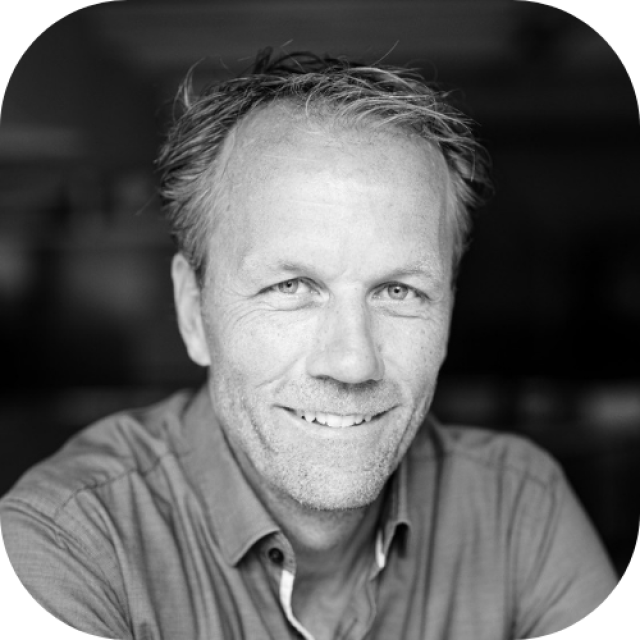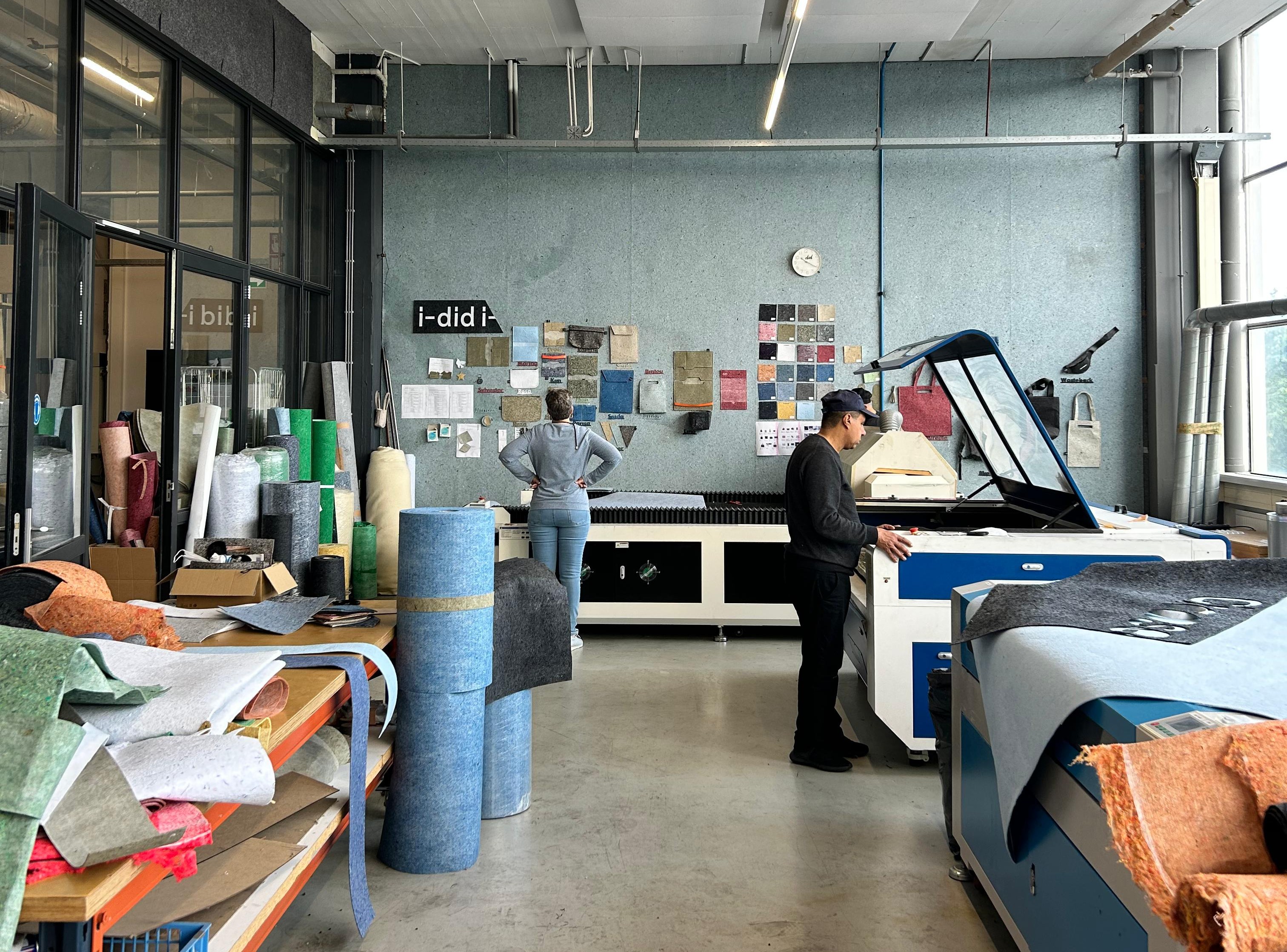i-did's circular vision: "We don't need new fashion, we need new chains"

Still one per cent
Once upon a time, i-did started as a slow fashion fashion label, using leftover fabrics from European brands. Then i-did switched to upcycling. But it soon became clear that converting unsold collections was not a long-term solution. "The real bulk is in textiles that are no longer wearable. We wanted to do something valuable with that." The result: a sturdy, recyclable felt suitable for bags, office accessories and interiors.
When Michiel started at i-did in 2012, only one per cent of all clothing worldwide was recycled. Anno 2025, this is still the case. "Indeed, the quality of clothes has only got worse. And the consumption drive greater," he says.

Circular must be able to compete
"We have all become used to low prices," says Michiel. "To make circular products affordable, we need to move to higher volumes. Then the price will naturally become more favourable."
But you don't reach that tipping point overnight. "Without clear guidance, we keep doing what we were already doing. Then it just goes too slowly," Michiel fears. Legislation and regulations, he says, are crucial to really get the transition to circular going.
Schemes such as Extended Producer Responsibility (UPV) can help bridge the price gap between fossil and circular materials. "If companies choose sustainable earlier, the volume will naturally grow along with them," he says.
"To make circular products affordable, volumes must go up"
Michiel Dekkers, i-did
But there too, it falters. Because i-did, for instance, falls outside the current UPV scheme. And that frustrates, because i-did actually adds a lot of value to worthless waste. "Our standard felt price sits at 24 euros per square metre, with about 450 grams of old textile in it. That's a hefty markup - but it doesn't count. We do not do fibre-to-fibre recycling but offer another circular product. Then you are not entitled to a fee per kilo of processed textile."
Scale through collaboration
Besides stimulating legislation, i-did also sees opportunities in cooperation. Not little individual projects, but structural chains. "It is much smarter to work with partners," says Dekkers. "Let everyone do what they are good at. Only then can you really unburden customers."
Ideally, a large customer would supply old textiles on a regular basis, which a party like i-did would process into felt, which designers or furniture makers could then turn into finished products. "If you manage to set up that kind of chain structurally, you can really start scaling up - without having to do everything yourself: from product development to marketing."
Initiatives like Textile District can play an important role in this. "Together, we make it easier for companies to choose circular. And make an impact at scale."
For the fashion industry, Dekkers adjusted his expectations. "That market is adamantly price-driven - and as long as consumers are used to spotty clothes, it is difficult to compete with that sustainably." But never say never: "We are now working with sustainable Dutch clothing brand Martan on a clothing line made of wearable felt. This is a party that really wants to innovate, not just on paper. "i-did provides the fabric, Martan the design and marketing.
In the long run, Michiel also sees this model on a larger scale. "Supplying fabrics and even sharing our 'recipe' to make high-quality felt from non-recyclable textiles is very interesting. Then other manufacturers can produce it locally, in our way. That's another way we can scale up."